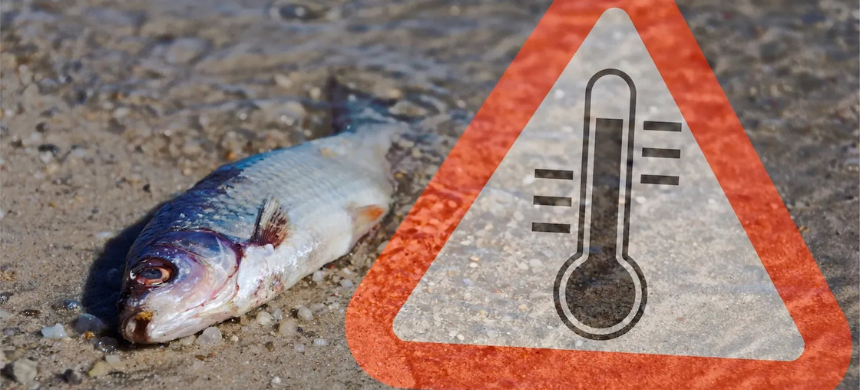Climate Change Threatens Pakistan’s Coastal Fishing Industry
Pakistan’s fishing community, long dependent on the rich marine life of its coastline, faces an existential threat as climate change disrupts the delicate ecosystems that sustain it. The impact of rising sea temperatures, altered monsoon patterns, and the depletion of marine resources is increasingly evident, affecting both the livelihoods of millions and the nation’s economy.
The Importance of the Fishing Industry
Fishing has been central to Pakistan’s coastal economy for centuries, providing food security and employment to coastal populations. The sector contributes significantly to the national economy, generating over $1 billion annually from exports and accounting for 1.5% of GDP. Yet, the combined effects of climate change are unraveling this vital industry.
Rising Temperatures and Declining Fish Stocks
The temperature of the Arabian Sea has risen by 0.5°C to 1.0°C over the past 50 years, with projections predicting a further increase of 2-3°C by 2050. Warmer waters affect fish reproduction and migration patterns, especially for species like tuna, sharks, and pomfret. The Marine Fisheries Department of Pakistan reports a 15% drop in national fish production between 2015 and 2020, with key species showing a decline of up to 30%.
Small-Scale Fisheries Struggle
Small-scale fisheries, which rely on local, seasonal catches, are facing the greatest challenges. These communities, which line Pakistan’s 1,050-km coastline, are seeing a reduction in fish availability. A 2021 World Bank survey revealed that 65% of fishers reported a significant decline in their annual catches, with many now venturing farther into the sea or resorting to unsustainable practices.
Read More: Fishermen Call For Comprehensive Policy Guidelines
Impact on Marine Ecosystems
In addition to rising temperatures, Pakistan’s coral reefs are suffering from bleaching due to heat stress. The Pakistan Environmental Protection Agency (PEPA) estimates that 50% of coral reefs along the Makran Coast have died over the past decade. This loss of coral reefs, which provide vital habitats for marine species, is exacerbating the decline in fish stocks.
Economic and Social Consequences
The economic ramifications of these changes are severe. Fisheries support the livelihoods of approximately 1.5 million people in coastal regions, particularly in the Sindh and Balochistan provinces. The International Labour Organization (ILO) estimates that over 200,000 fishing families have been affected by dwindling fish stocks and erratic weather patterns. According to the Pakistan Institute of Development Economics (PIDE), the fishing industry could lose up to $300 million annually by 2030 if current trends persist.
Government and NGO Efforts
In response to the crisis, the Pakistani government and NGOs have taken steps to mitigate the impact of climate change on fisheries. The Ministry of Maritime Affairs, in collaboration with international partners, has launched initiatives like the Coastal Development Project, which aims to restore damaged coastal ecosystems and establish Marine Protected Areas (MPAs). These MPAs, such as those in the Churna Island and Miani Hor regions, aim to regenerate marine life and protect breeding grounds for fish.
Additionally, organizations like the WWF Pakistan and the Indus for All Programme are working with local communities to promote sustainable fishing practices and increase awareness about the effects of climate change.
Read More: Seven Punjab Workers Slain Near Gwadar Fish Harbour
Urgent Need for Action
While these initiatives are a step in the right direction, more needs to be done. To safeguard the future of Pakistan’s fishing industry and coastal communities, several measures must be implemented:
- Promote Sustainable Fishing Practices: Encouraging the adoption of environmentally friendly fishing techniques can help reduce the strain on overexploited fish stocks.
- Expand Marine Protected Areas (MPAs): MPAs are essential for the recovery of marine biodiversity and must be expanded and effectively managed.
- Develop Climate-Resilient Livelihoods: Alternative livelihoods, such as eco-tourism and aquaculture, as well as training in climate adaptation practices, will be crucial for communities that rely on fishing.
- Strengthen Policy Frameworks: Effective policies related to fisheries management, climate change adaptation, and environmental protection must be enforced to ensure long-term sustainability.
Pakistan’s fisheries sector faces an uncertain future due to the combined effects of climate change, but with increased investment, comprehensive climate adaptation strategies, and strengthened policy frameworks, the country can work towards a more resilient and sustainable fishing industry.










